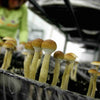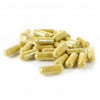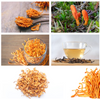LSD Tolerance Calculator: Test your Tolerance
LSD Tolerance Calculator, the idea sounds simple but in reality putting it into practice is quite difficult.
To access this LSD tolerance calculator on google sheets click here
To understand how LSD tolerance works and to calculate your level of tolerance, we need to understand the way LSD interacts with the serotonin receptors in our brain.
The serotonin receptor is made of five sub-units, and LSD fits between these sub-units, much like a key that fits into a lock.
As you can see, LSD fits snugly into the serotonin receptor when it is not bound to any other chemical. However, once LSD binds to another chemical (such as serotonin), it will no longer fit in the receptor and LSD will be unable to have an effect on our brain. In short, tolerance occurs when too much of a substance binds to the receptors. When this happens, the receptors become less receptive and require more of the substance to activate them. This is how we develop tolerance to drugs like alcohol or nicotine.
When we take LSD, Initially, the brain has a sufficient amount of serotonin to bind to all of the LSD molecules. As a result, LSD activates the receptors and produces its mind-altering effects.
Over time, however, our brain will produce more serotonin than is necessary. This increases the number of serotonin receptors in our brain that are not occupied by any LSD molecules. As a result, our brain no longer needs to produce as much serotonin to activate all of the available receptors.
This process continues until there are too many serotonin receptors that have become unoccupied by LSD molecules, and therefore cannot be activated. This is how we develop tolerance to LSD.
It should be noted that tolerance occurs to the mind-altering effects of LSD, but not to its physical effects. For example, while we may develop tolerance to LSD's hallucinogenic effects, at high doses it can still cause sweating, increased heart rate and blood pressure, etc.
To calculate your level of LSD tolerance:
Step 1: Take your last dose of LSD (or the highest amount you've taken in the past) and divide it by your average dose. The average dose is determined by adding up all of the doses you've taken and dividing by the number of times you took LSD.
Step 2: Multiply this number by 100. This will give you a percentage that represents how much more potent future doses will be compared to your last dose or highest dose.
Step 3: Multiply the number from Step 2 by the amount of time since your last dose or highest dose.
Step 4: This final number represents the average dose of LSD you would need to take in order to have the same effects as your last dose or highest dose.
Note: This LSD Tolerance Calculator is based on the assumption that you have taken LSD on a regular basis. If you have only taken LSD once or twice, it is unlikely that you will develop tolerance to LSD.
What things can I do to prevent LSD tolerance from forming?
There are several ways that you can reduce tolerance from forming. First, it is important to note that taking LSD less frequently will slow down the development of tolerance. If you take LSD once a week instead of twice a week, your brain won't produce as much serotonin and therefore won't develop as much tolerance.
If you have already developed tolerance, there are still ways that you can prevent further tolerance from developing. Taking a break from LSD, even for just a day or two, will allow our brain to go back to producing serotonin at its normal rate and level and thereby reset its sensitivity to the drug. Additionally, supplementing with 5-HTP or L-Tryptophan (both precursors to serotonin) can help restore balance in our brain chemistry without causing us to build up additional tolerance.
As you can see, tolerance to LSD builds up over time. The more frequently we use the drug, the more likely it is that we will develop tolerance and require higher doses of LSD to achieve the same effects. By reducing our frequency of use or taking a break from LSD, we can prevent tolerance from forming and ensure that future doses are just as effective as our first dose.
What can I take to increase the effects of LSD during a trip?
You've probably heard of eating oranges or grapefruit during trips to increase the effects of LSD, but why does this work?
There are several reasons why eating citrus fruits may increase the effects of LSD. First, citrus fruits contain Vitamin C, which is a precursor to serotonin. When our brain produces serotonin from Vitamin C, it will remove some of the excess serotonin that has built up over time due to tolerance. As a result, it will be easier for LSD molecules to bind to the receptors in our brain and produce its mind-altering effects. Additionally, vitamin C bonds with LSD very easily and prevents it from metabolizing into inactive byproducts. This means that the trip will last longer and you'll feel more intense effects during your trip than you would if you hadn't eaten oranges or grapefruit before taking.
To conclude this article
Tolerance to LSD builds up over time, especially if we take LSD more frequently. While this is not harmful and tolerance will naturally decrease as we stop taking the drug, it can make future trips less enjoyable. The good news is that there are several ways we can prevent tolerance from forming or reverse existing tolerance. By reducing our frequency of use or taking a break from LSD, our brain will produce fewer serotonin receptors that are unoccupied by LSD molecules and therefore cannot be activated. As a result, future doses will be just as effective as our first dose was. Additionally, supplementing with 5-HTP or L-Tryptophan (both precursors to serotonin) can help restore balance in our brain chemistry without causing us to build up additional tolerance.







Leave a comment
Please note, comments must be approved before they are published